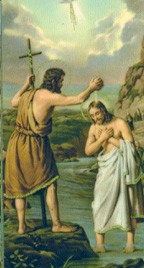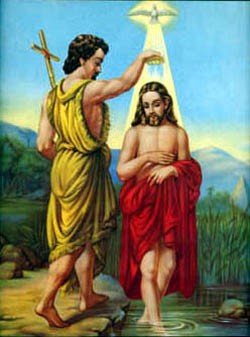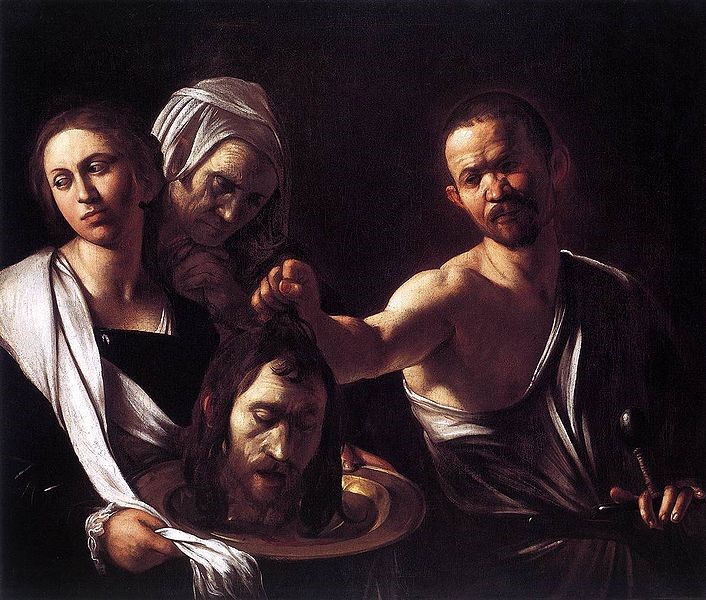St. John the Baptist


John spent his time in the desert, an ascetic. He began to announce the coming of the Kingdom, and to call everyone to a fundamental reformation of life.
His purpose was to prepare the way for Jesus. His Baptism, he said, was for repentance. But One would come who would baptize with the Holy Spirit and fire. John is not worthy even to carry his sandals. His attitude toward Jesus was: “He must increase; I must decrease” (John 3:30).
John was humbled to find among the crowd of sinners who came to be baptized the one whom he already knew to be the Messiah. “I need to be baptized by you” (Matthew 3:14b). But Jesus insisted, “Allow it now, for thus it is fitting for us to fulfill all righteousness” (Matthew 3:15b). Jesus, true and humble human as well as eternal God, was eager to do what was required of any good Jew. John thus publicly entered the community of those awaiting the Messiah. But making himself part of that community, he made it truly messianic.
The greatness of John, his pivotal place in the history of salvation, is seen in the great emphasis Luke gives to the announcement of his birth and the event itself—both made prominently parallel to the same occurrences in the life of Jesus. John attracted countless people (“all Judea”) to the banks of the Jordan, and it occurred to some people that he might be the Messiah. But he constantly deferred to Jesus, even to sending away some of his followers to become the first disciples of Jesus.
The biblical account portrays the beheading of Saint John the Baptist by Herod Antipas. Herod had imprisoned John because he reproved Herod for divorcing his wife (Phasaelis), and unlawfully taking his brother Herod Philip I's wife, Herodias. On Herod's birthday, Herodias' daughter (traditionally named Salome) danced before the king and his guests. Her dancing pleased Herod so much that in his drunkenness he promised to give her anything she desired, up to half of his kingdom. When the daughter asked her mother what she should request, she was told to ask for the head of John the Baptist on a platter. Although Herod was appalled by the request, he reluctantly agreed and had John executed in the prison.
The Beheading of John the Baptist

